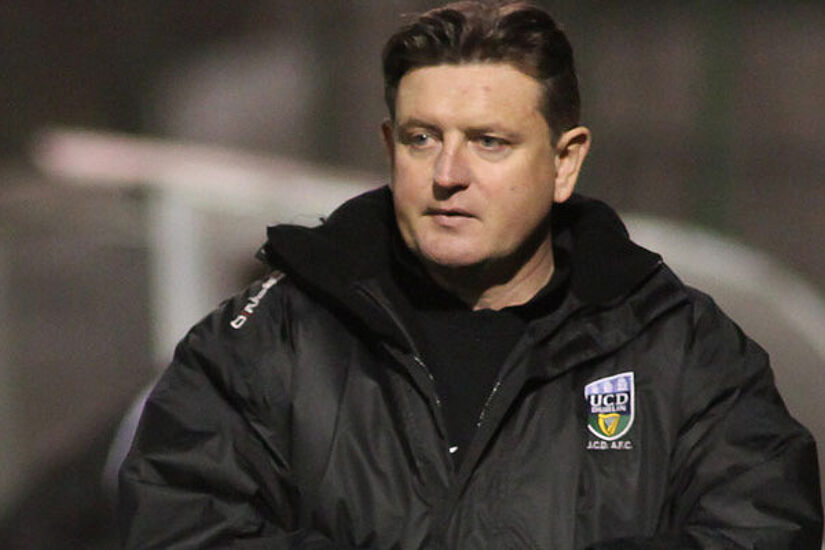Tom Clancy: Why Martin Russell's departure isn't a surprise

Credit: Eddie Lennon (ETPhotos)
On Monday, Limerick parted company with manager Martin Russell. The Dubliner had been in charge of the Super Blues since July 2014, having taken the reigns after Scot Stuart Taylor.
Despite Limerick’s mixed start to the season, where they’ve taken seven points from a possible 18, it appears the Limerick board didn’t hesitate to move towards a change of direction.
Limerick won 30% of their Premier Division games under Russell, 16 times in 53 outings – which includes a 22 game run without a win.
Following Friday’s defeat to Cork City, Russell appeared, naturally, dejected. He spoke about the need to improve on individual mistakes, which have hindered his side’s progression during his time at the club.
An individual error led to Sean Maguire’s opener on Friday, and individual errors had directly caused dropped points in games against Finn Harps, Dundalk and Bohemians this season.
There are countless examples during Russell’s time in charge of a desire to overplay in their own half which have cost the side points.
Crucial dropped points near the end of 2015 led to a play-off defeat to Finn Harps, where Limerick’s defeat and relegation was perhaps somewhat self-inflicted.
Other factors also need investigation. The loud groans from Chairman Pat O’Sullivan on the terraces Carlisle Grounds made it clear that Limerick were a team underachieving.
His roars could be heard in the nearby press box, some of which signalled a Chairman disagreeing with the decision-making of his manager. Limerick were comprehensively beaten by a patient St Patricks Athletic side in the FAI Cup last term.
Weeks later, the Super Blues tired after a frantic start to the EA Sports Cup final to suffer another defeat to Liam Buckley’s side. Had Limerick leaned from their mistakes? The budget has also been a talking point, even before the ball was kicked. Reportedly, Limerick have a budget which ranks higher than the majority of other Premier Division clubs.
A sloppy home loss to Bohemians, coupled with a draw against Finn Harps, left many on Shannonside disgruntled and confused – the side they’d witnessed tear Sligo Rovers apart were struggling to create chances and seemed devoid of fresh ideas when trailing. Many would cite the dismissal of Pat Scully, who’d just won the First Division, and say that the board are too quick to change.
But, in 2014, Limerick allowed Stuart Taylor a second season, which immediately turned into mediocrity, as Limerick looked unlikely to improve upon their seventh place finish in 2013.
They failed to move until July, at which point Limerick were mid-table and out of both cup competitions. Russell guided Limerick to sixth, despite their inconsistent form. Many will maintain that Martin was dealt a poor hand prior to the 2015 season: a significantly reduced budget meant a mix of youth and experience failed to gather any momentum, or victories.
Additions in July helped Limerick eventually climb off the bottom on the final day, but the play-off heartbreak in Ballybofey showed familiar failings as Ollie Horgan’s side were able to frustrate Limerick before relegating the Blues in dramatic fashion.
A fantastic run in 2016 saw Limerick win the First Division at a canter. The style of attacking play was clear and often fantastic, though the gap in budget and personnel between Limerick and their First Division opponents appears to have diminished winning the league by 23 points.
That same style has become predictable and easily counteracted in the early stages of 2017. The formation and style used has been consistent over time, which seems to have made it easy to foil. To credit Russell, he oversaw a transitional period in the club's history, moving from Thomond Park to Jackman Park to Markets Field.
Limerick appear settled in their revamped home, though the process to get to the Garryowen venue can’t have helped the former UCD boss.
Was this decision too sudden? Only time will tell.
But it appears that the board have a view that something had to change for Limerick to reach their targets in 2017, though perhaps people shouldn’t be surprised given the regular failings shown by Russell’s side.

